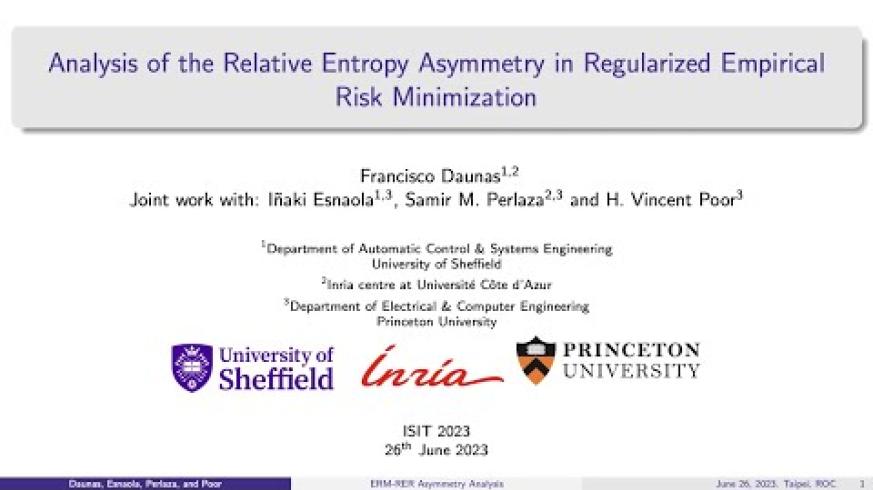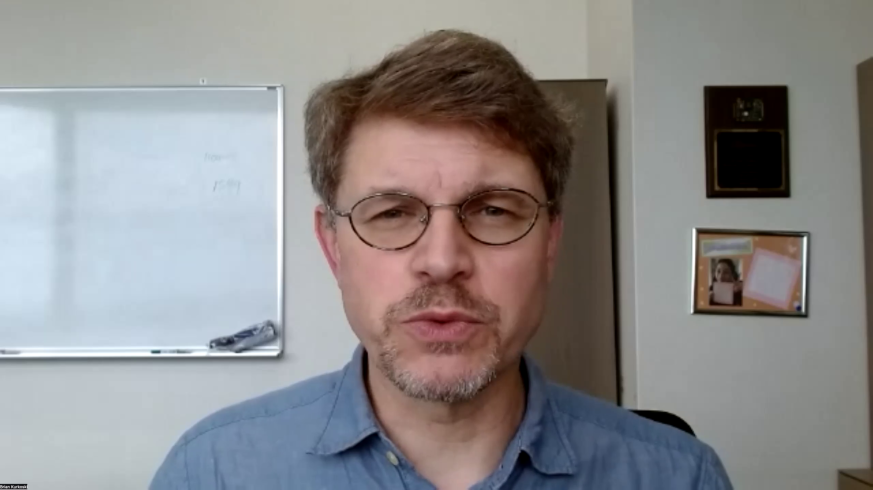
Information Theory Society
The IEEE Information Theory Society is the premier professional society dedicated to the advancement of the mathematical underpinnings of information technology for the benefit of humanity. Information theory encompasses the processing, transmission, storage, and use of information, and the foundations of the communication process.
Aspects of Our Society
Outreach
A gathering of videos, books and more that show how information theory impacts our lives.Meet IT Society Students
The Student and Outreach Subcommittee plans student and outreach activities at symposia and workshops.Read Our Newsletter
The IEEE Information Theory Society Newsletter connects our members and is published four times a year. Beginning with the March 2022 issue, the Newsletter is online only.News
Robert Calderbank - USC Viterbi Lecture, Thursday March 2, 2023
Robert Calderbank of Duke University will give the 2023 USC Viterbi Lecture on Thursday, March 2,…
Submission Deadline Approaching: JSAIT Issue on Role of Freshness and Semantic Measures
Call for Papers for JSAIT Issue on the Role of Freshness and Semantic Measures in the Transmission…
IEEE Information Theory Society Call for 2023 Award Nominations
Nominations are now open for paper awards as well as annual awards and recognition from the IEEE…
Aylin Yener Has Been Elected To Be the Next IEEE Division IX Director
The IT Society congratulates our Past President Aylin Yener for being elected to be the next IEEE…
Conferences
Jobs Board
Postdoctoral Researcher Position on Information Theory and Coding
Immediate openings for postdocs on insertion/deletion channels and DNA storage at Bilkent…
Postdoc Positions in Wireless Communications
Department of Electrical and Computer Engineering at University of Hawaii is looking for two…
Postdoctoral Position in Econometrics and Statistics
The University of Vienna invites applications for a postdoctoral position in the field of…
Call to Action
Recent Journal Issues
IEEE Journal on Selected Areas in Information Theory
IEEE BITS the Information Theory Magazine
Videos on Information Theory
Research In Information Theory
2024 Index IEEE Journal on Selected Areas in Information Theory Vol. 5
JSAIT Issue on Information-Theoretic Methods for Trustworthy and Reliable Machine Learning
Editorial Data, Physics, and Life Through the Lens of Information Theory
Rate-Distortion-Perception Tradeoff for Gaussian Vector Sources
Quantum Sensing and Communication via Non-Gaussian States
Source Coding for Markov Sources With Partial Memoryless Side Information at the Decoder
Deviation From Maximal Entanglement for Mid-Spectrum Eigenstates of Local Hamiltonians
Generalized Autoregressive Linear Models for Discrete High-Dimensional Data
Fitting multivariate autoregressive (AR) models is fundamental for time-series data analysis in a wide range of applications. This article considers the problem of learning a $p$ -lag multivariate AR model where each time step involves a linear combination of the past $p$ states followed by a probabilistic, possibly nonlinear, mapping to the next state. The problem is to learn the linear connectivity tensor from observations of the states. We focus on the sparse setting, which arises in applications with a limited number of direct connections between variables.


















